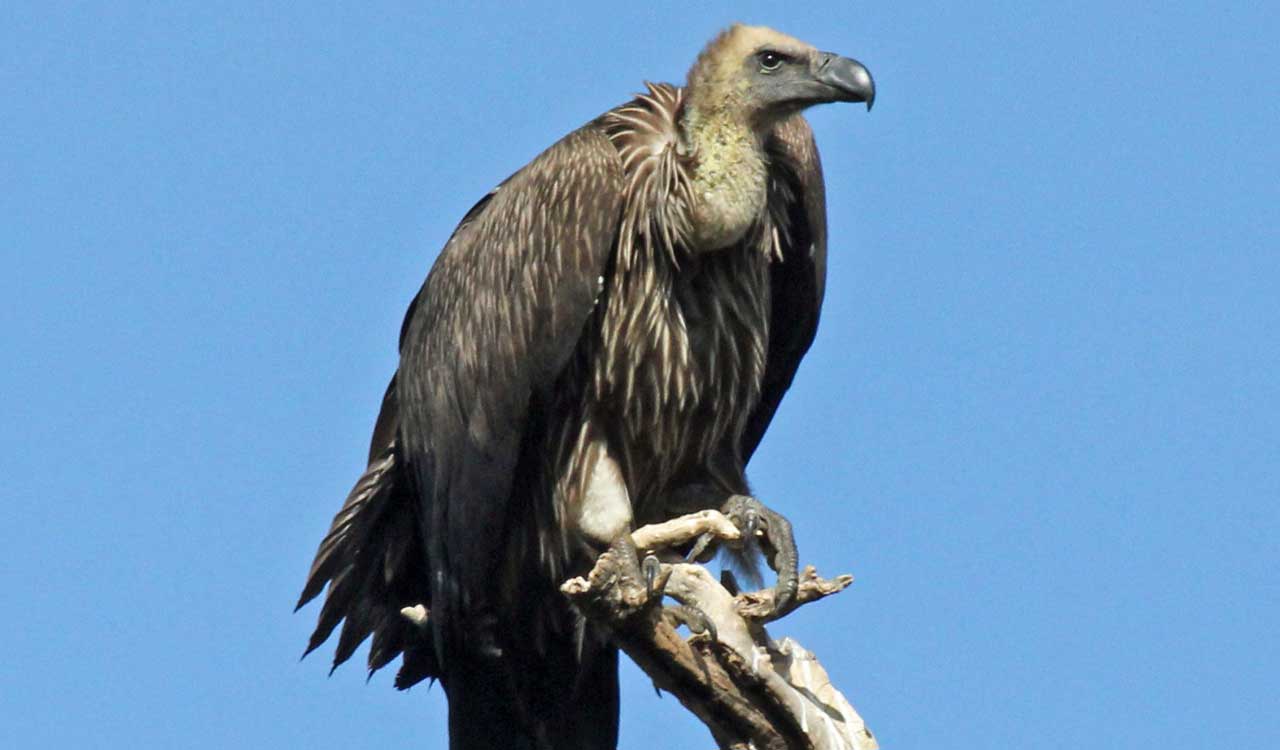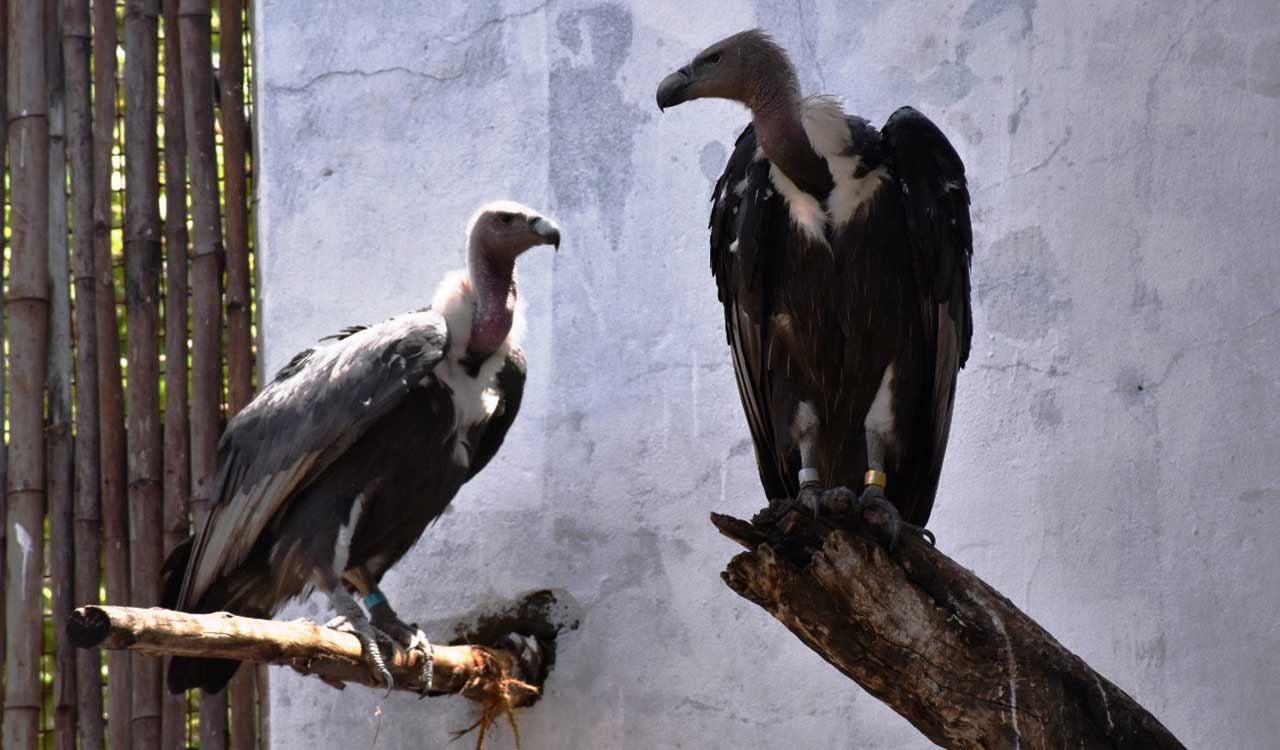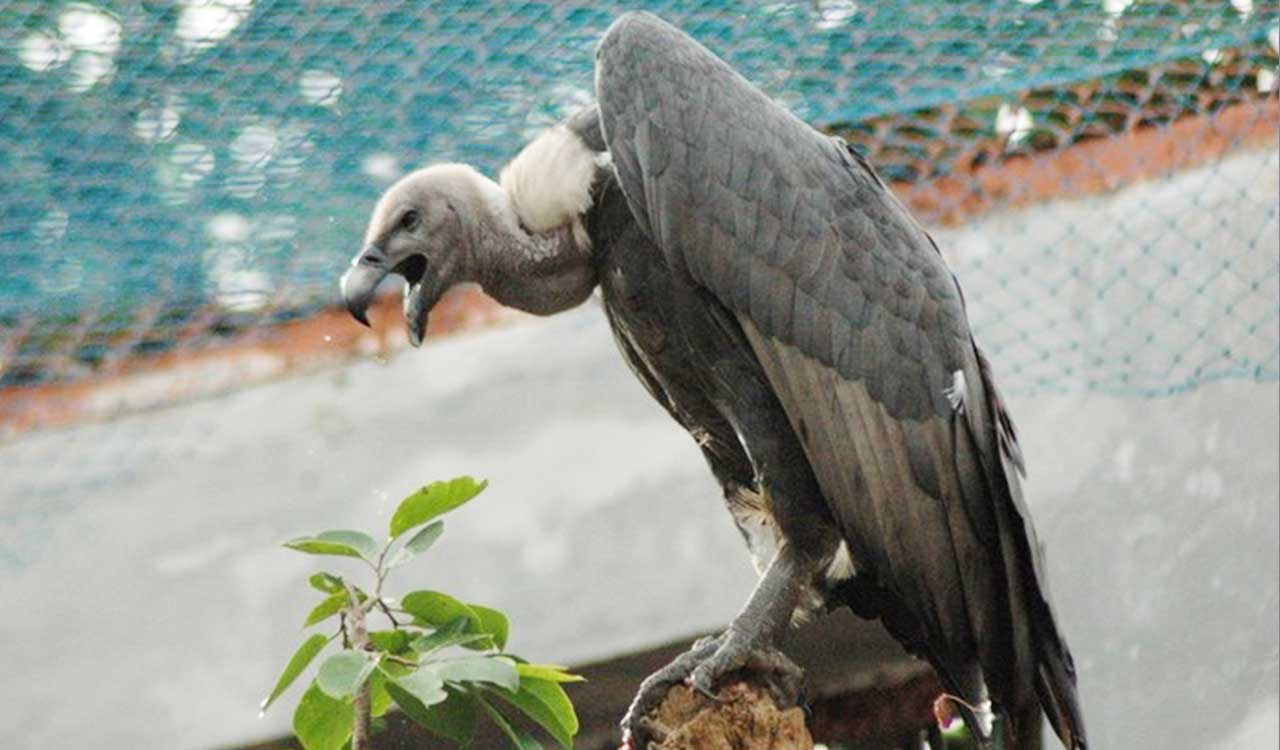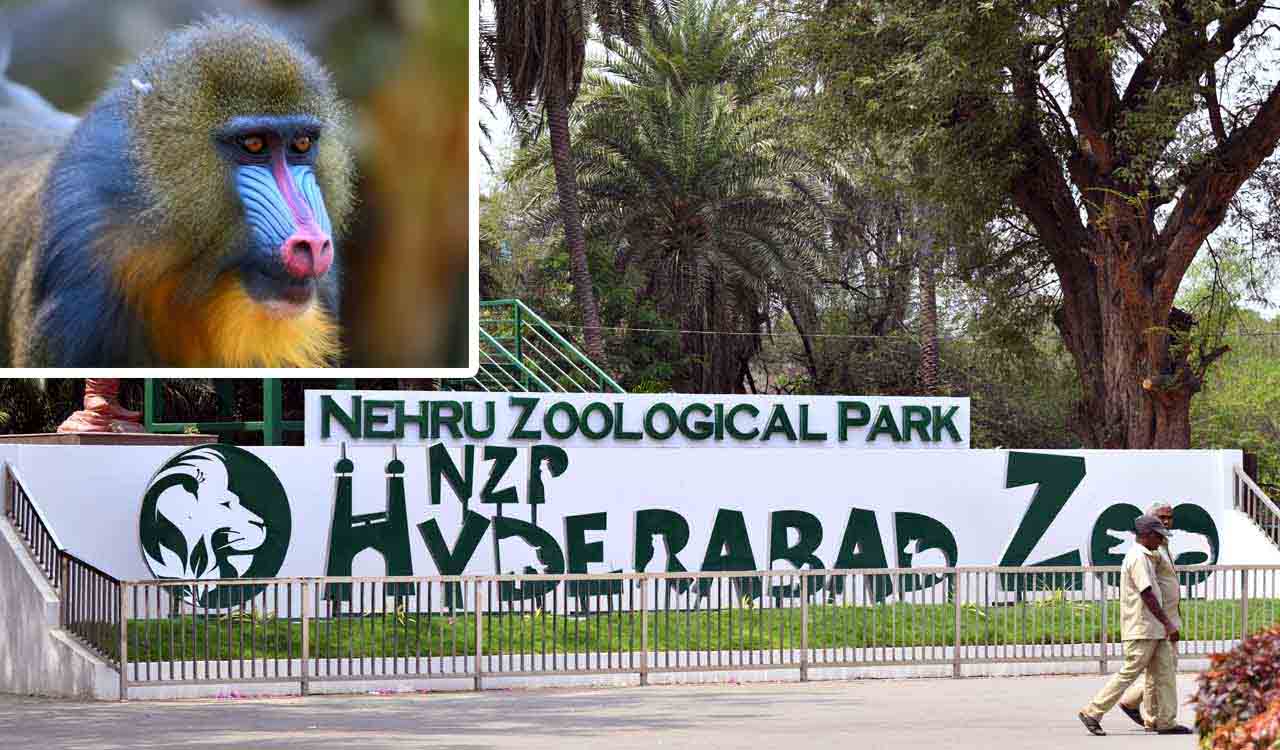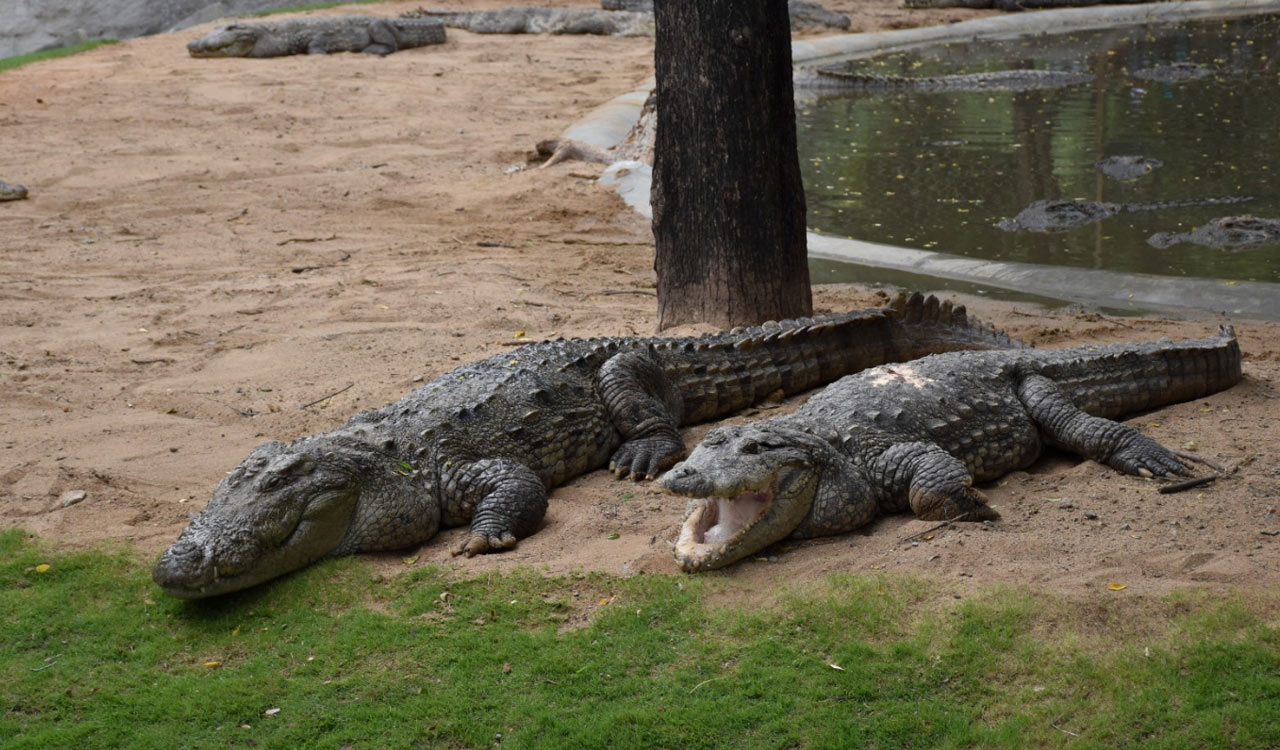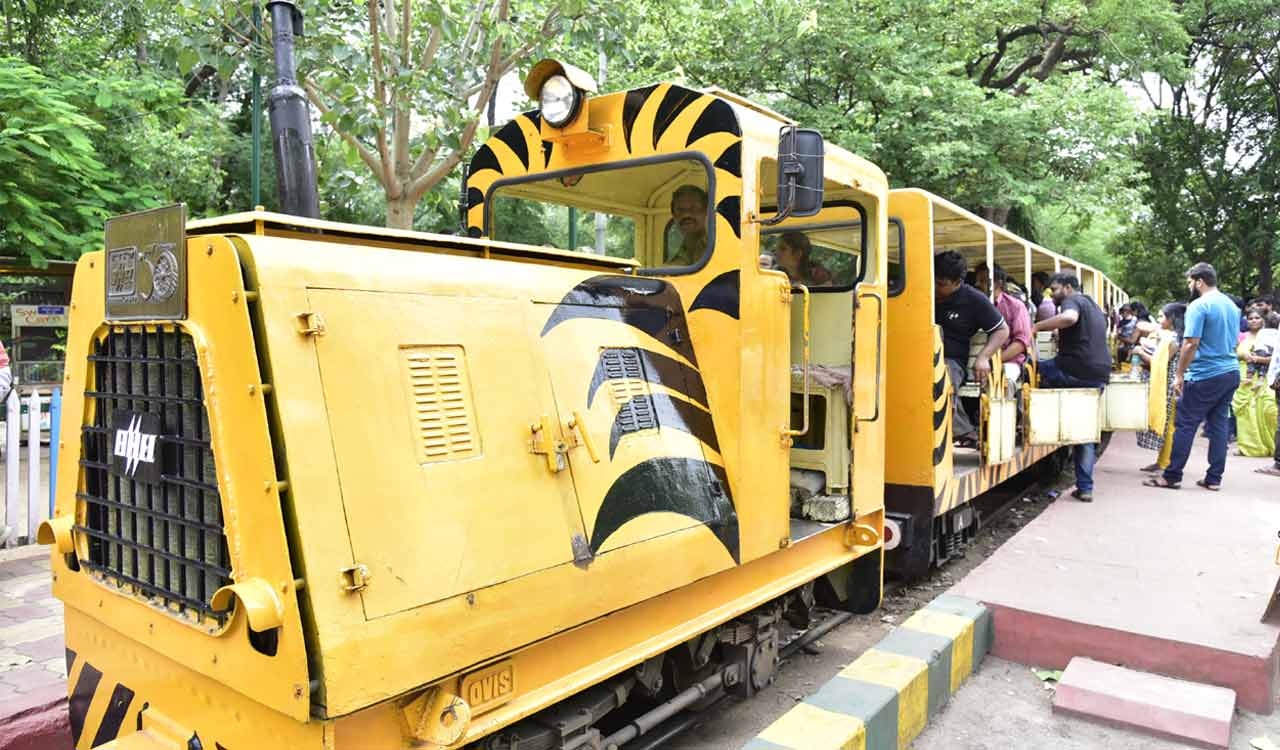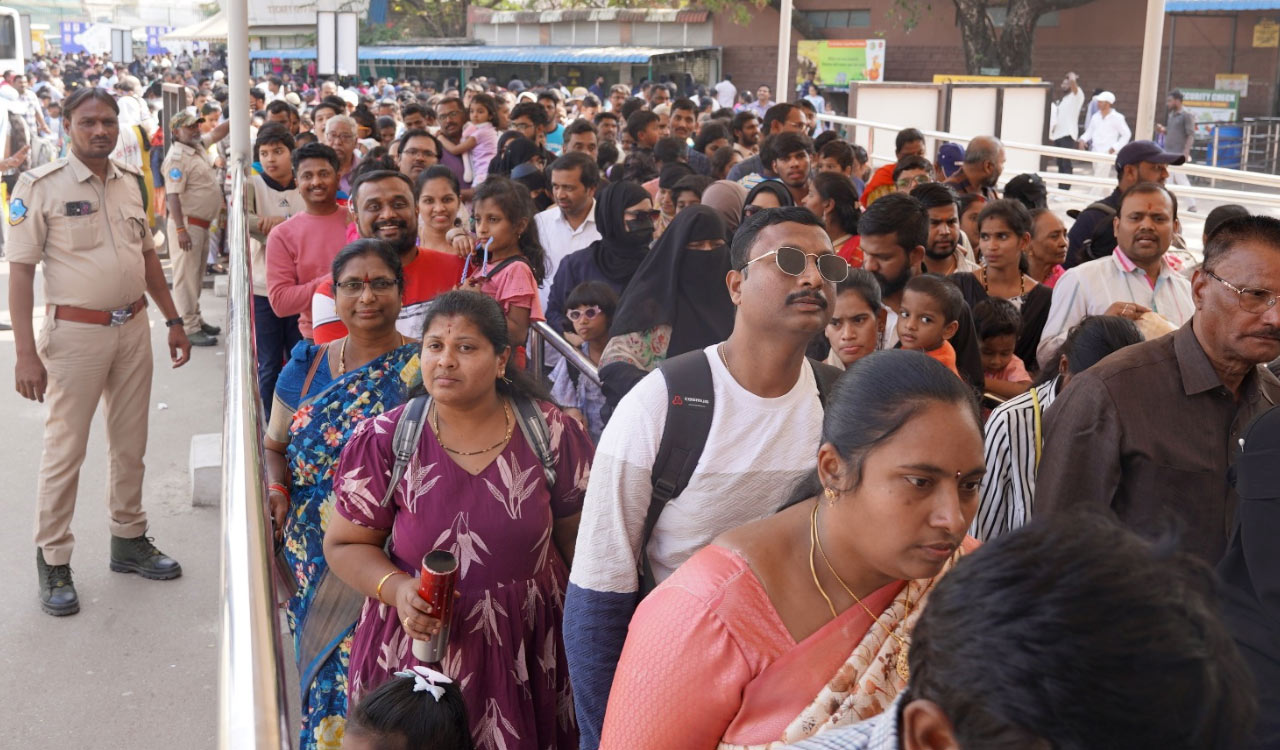Hyderabad Zoo to give lifeline for critically endangered vultures
The Nehru Zoological Park will shortly commence breeding of three species of critically endangered vultures in its specialised breeding centre
Hyderabad: In a move to save critically endangered species of vultures from extinction, the Nehru Zoological Park (NZP) here will soon launch a specialised breeding programme.
The zoo will be taking up breeding of White-backed Vulture, Long-billed Vulture and Slender-billed Vulture in its dedicated breeding centre located in its premises.
The zoo authorities will shortly receive these scavenger birds from the Jatayu Conservation Breeding Centre in Pinjore, Haryana. The Central Zoo Authority of India recently decided to transfer 10 White-backed Vultures, 10 Long-billed Vultures and four Slender-billed Vultures to Hyderabad zoo.
These birds, which feed on dead animals and help keep the environment clean besides reducing spread of diseases, are listed among critically endangered species by the International Union for Conservation of Nature (IUCN) due to their declining population.
“Presently, the Hyderabad zoo has vultures but they are old and breeding cannot be done with them. The CZA approved transfer of vultures from Pinjore to Hyderabad. We will shortly bring them and start breeding,” said Dr Sunil S Hiremath, Director Zoo Parks Telangana.
The vultures breeding dates back to 2010 when it was for the time commenced with a founder stock of five white-backed vultures with two male and three females that existed in the zoo. Further, six vultures were brought from Sakkarbaug Zoo in Gujarat in 2014-15.
Unlike breeding of mouse deer, which has been a huge success for the NZP, vulture breeding was a short-lived success after one egg that hatched into a chick died after 85 days due to a congenital defect.
“We have not been that successful in breeding vultures. The issue is the bird lays only one egg in a year. Despite the best efforts in saving the chick, it died of a congenital defect. This time we are hoping for success,” sources said.
The mouse deer breeding programme, commenced in 2010, has been a successful initiative for NZP as, so far, 264 of them have been reintroduced into the wild. As many as 74 mouse deer were transferred to other zoos in animal exchange programmes and another seven were reintroduced in different places. Presently, the zoo has a mouse deer population of 129.
In the past, the NZP bred marsh crocodiles and released them into the wild. This apart, the NZP has also successfully bred several endangered species, including Asiatic Lion, Royal Bengal Tiger, Rhinoceros, Elephants, Pythons, Jaguars, and Baboons.
Related News
-
Keralam: Kerala’s name change rooted in history and language
4 hours ago -
Shreyanka Patil says it was a difficult phase to miss competitive cricket
4 hours ago -
Senior Nationals 2026: Ajay Thakur calls it India’s biggest kabaddi stage
4 hours ago -
Sale of tickets for ICC Men’s T20 World Cup semifinals and final goes live
4 hours ago -
ICC Women’s T20 World Cup 2026 schedule confirmed
4 hours ago -
Kerala to be renamed Keralam: Union Cabinet
4 hours ago -
Sports briefs: Fine show by AMF para cyclists
4 hours ago -
Pundir century and Yawer 88 give Jammu & Kashmir edge over Karnataka in Ranji final
4 hours ago

